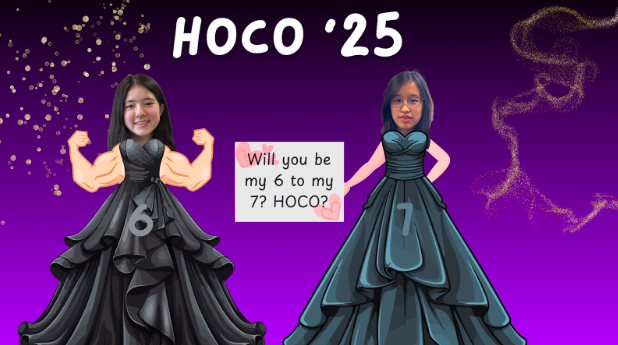Rohingya genocide detected too late
March 1, 2018
The Holocaust, where at least six million people were erased from existence without even a whisper heard, often serves as an example for humanity to say “not again.” But it has happened since, is happening presently, and will continue to happen. Our mentality towards genocide as Americans is one of an onlooker. Our self-serving society has deeply rooted in us that the only thing worth effort or care is I, not a collective we.
For the past three years, the Southeast Asian country of Myanmar has been a hub of genocide, and reports on the “ethnic cleansing” have only recently begun creeping through the cracks.
Beginning in 1982, the predominantly Buddhist country revoked the Rohingya Muslims of their citizenships and the government has continued to discounted them from the census report as they considered them undocumented immigrants. Lacking any political autonomy, the Rohingya Muslims have been restricted on all bases of their lives for decades now including the marriage, voting, and the amount of children they are allowed to have. As the government began issuing military crackdowns on their villages, the Rohingya situation has progressively worsened as attacks snowballed and thousands have been raped, starved, tortured, and massacred.
Recently, several mass graves were discovered and the Huffington Post suggests they are a sign of genocide, since it is the organized killing of civilians by the government.
In junior high, my social studies classes spent the majority of those two years focused solely on genocides; we spent the latter half of eighth grade learning about the Holocaust. Eight characteristics were taught to us about how to identify a genocide:
- Classification is separation of a people and a barrier is erected with an us versus them policy.
2. Using hate symbolism in forms of hate speech.
3. Enduring unhygienic and inhumane living conditions in tents, they are dehumanized.
4. Organization of military forces against them.
5. An extreme separation of groups through propaganda.
6. As the preparation stage begins, it becomes clear that there is a genocide at hand as they are separated from the rest of the population.
7. Extermination is the mass killing of a people.
Along with denying Rohingyas citizenship, they are being labeled Bengalis, a different ethnicity, in order to strengthen their outcast status. The Myanmar militia continues to attack civilians without reason as many refugees have spoken about the abuse they’ve encountered at the hands of the governments military. The Rohingya have been shoved into a small corner of Myanmar, the state of Rakhine, as they are considered intruders from another country. Attacks on Rakhine have forced upwards of 400,000 Rohingyas to flee the country to refugee camps. Some local communities are also sharing anti-Rohingya pamphlets calling for the eradication of their people and advocating for an ethnic cleansing. Recent discoveries of mass graves send strong implications that the Myanmar army has been killing and burying Rohingya Muslims mass groups at a time without notifying any authorities. Knowing the government would only turn a blind eye towards this treatment, the Rohingyas are left helpless in their own homes at the mercy of a hostile military.
8. Aung San Suu Kyi, the de facto leader of Myanmar and Nobel Peace Prize winner, has withheld condemning the brutal practices of the armed forces of the government and does not recognize the Rohingyas to be part of her people. As they deny the brutal killings and refuse to denounce the militia’s practices, the government of Myanmar completes the last step of genocide: denial.
I hate the very existence of the root of the next question I will propose, however I do think it is necessary to consider when evaluating a crisis at hand: Is it because they’re Muslim that there has been minimal coverage? As proven above, their treatment ticks all the boxes of genocide. If a white community was persecuted by Muslim infiltrators, would the response be the same? Terrorist attacks are covered in seconds by news media, and they’ve shown the devastation as people have been killed in Paris, sparking the #PrayforParis campaign. One day prior to Paris, Beirut was bombarded with Isis attacks that took over 40 lives and injured more than 200 people, but there was no #PrayforBeirut. The victims in Lebanon’s capital were simply ignored. Granted, our world is a zone of destruction and not every death and attack can be recorded. Even though I have not looked through every news platform ever, this is a recurring trend I have noticed.
Times magazine writer Aryn Baker asks the question I’ve recently kept locked at the back of my mind:
“I tried to pin down a ratio: how many Pakistani or Afghan dead would it take to generate the same newsworthiness as the death of an American?”
The ethnic cleansing in Myanmar has been an ongoing ordeal; however, recent coverage has prompted growing numbers of Americans to acknowledge this crisis. At the start of the year, whenever I asked my classmates about the Rohingya crisis, I usually received a blank stare signaling their lack of knowledge about the pervasive conflicts in Myanmar. Some get so tired of news that they stopped caring, but we should not and cannot do that. It is integral to stay informed of the world around us as injustice and persecution is widespread and will not go away if we stop paying attention. We have to stay informed so that when it’s our turn, we aren’t going to let fatalities and genocides continue.
The Rohingya crisis has been garnering a lot of attention lately. With awareness, action should follow; an answer needs to emerge for stopping the violence and killings. This is a human crisis, no one can stop it but humans as a whole. After the Holocaust it was said that never again would such a tragedy occur without intervention, but here it is again. Martin Niemöller laments through his post-World War II essays the detriments of being a bystander, writing,
“First they came for the Socialists, and I did not speak out—
Because I was not a Socialist.
Then they came for the Trade Unionists, and I did not speak out—
Because I was not a Trade Unionist.
Then they came for the Jews, and I did not speak out—
Because I was not a Jew.
Then they came for me—and there was no one left to speak for me.”


